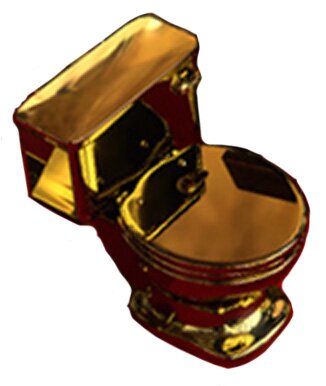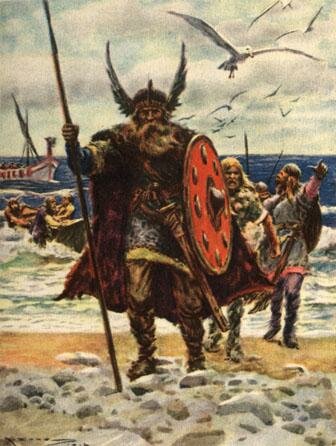Top 10 Most Pointless Wars
Suggested by SMSWar. What is it good for? Well, in many cases, absolutely nothing.
Of course sometimes war is a necessity and can be a very effective political tool. The Second World War, for example, was entirely justified (at least from the allied perspective) and was successful in stopping what would have been decades, if not centuries, of Nazi oppression. It also resulted in great political and scientific advances like the U.N and the atomic bomb. Throughout history, however, wars have been fought over the silliest things and have resulted in nothing but pain and misery. Here are our top 10 most pointless wars. Feel free to disagree and get all het-up over your sense of national pride.
10. The Falklands War

The Falkland Islands is a small archipelago in the South Atlantic Ocean, approximately three hundred miles off the southern coast of Argentina. They have a population of around three thousand British citizens, mostly of British descent, and about the same amount of sheep and deer. The Falkland Islands are an oversees territory of the United Kingdom and serve as a naval base of the Royal Navy. Essentially the islands are baron and considered to be a small, insignificant, and mostly forgotten corner of the British Empire.
And yet in 1982 Great Britain went to war over the Falkland Islands, following an invasion by Argentinean forces. There are many people in the U.K today that consider the Falklands War to have been a rather pointless conflict. These are mostly those that lost loved ones in the conflict. Amongst others, the consensus is that the Falklands War was a worthwhile undertaking on the matter of principal. This principal being that every corner of the British Isles, no matter how remote, is worthy of the full defense of the British Crown. It was on this standpoint that the war was fought. It sent a message to the rest of the world that Great Britain was not a force to be toyed with and that, although severely reduced in size, the British Empire is an ever present force in world politics.
Of course, from the Argentinean point of view, the Falklands was thoroughly pointless and a total disaster. Argentina went to war with one of the most heavily armed and technologically advanced naval forces in the world over a few pointless, wind-battered islands. And they lost! How embarrassing.
The Falklands war lasted just over two months, although war was never declared. Argentina was sent packing by British forces after a closely fought naval and air battle, and a grueling land campaign.
9. The Cod Wars

The Cod Wars, so called by the British media, were a series of heated conflicts between Great Britain and Iceland over fishing rights in the North Atlantic between the 1950s and 1970s. The argument became so heated that it would surely have resulted in open warfare were not for the fact that both countries are NATO members.
To say that open warfare did not break out during the Cod Wars is a matter of contention. Although no official state of war ever existed between the two governments, a state of war certainly existed between British fishermen and the Icelandic coast guard. When Icelandic vessels began cutting the nets of British trawlers both sides armed themselves. There were several incidents in which ships rammed each other, and when the Royal Navy was called in to protect British trawlers they took the extreme measure of actually firing upon the Icelandic coast guard on several occasions.
8. The War of Jenkins’ Ear

The war of Jenkins’ ear was essentially a trade war between Great Britain and Spain, fought exclusively in their American colonies between 1739 and 1742. The war began as a naval conflict over the rights of British traders in Spanish waters, largely played out by privateers. It later featured some major land battles as the British parliament became more determined to see any tangible results of their campaigns. After four years of war the map of the Americas had not been altered I any way and Britain had not succeeded in pressing their naval advantages against the Spanish Empire. This colonial war then spilled over into the larger War of the Austrian Succession, fought in Europe. Between 1739 and 1742 the British had not launched a major offensive against the Spanish in Europe for fear that the French would enter the war in their defense. But when the War of the Austrian Succession began, France declared war on Britain anyway, leaving the British feeling that they should have attacked Spain when the odds were in their favor.
The war began when a number of British trade vessels were boarded and confiscated at Spanish ports, despite a treaty which gave them rights to trade goods and slaves in Spanish America. One of the captains of these ships, Robert Jenkins, had his ear cut off by a Spanish captain. When giving evidence of the Spanish raids in parliament, Jenkins produced his severed ear to the English politicians, causing outrage and sparking the war.
The major British campaigns took place in south and central America. A full scale invasion of New Granada (present day Columbia) ended in disaster with the British troops succumbing to a deadly tropical disease. Other attacks were in the Caribbean islands and the Venezuelan coast, none of which were particularly successful. An attack on the Spanish port of Porto Bello, on the coast of Panama, was the only success. Porto Bello was a major source of silver. The British attacked and captured the town, holding it for a mere three weeks. In that time, however, they had destroyed the towns fortifications and warehouses. When the victorious fleet returned home, ‘Rule Britannia’ was performed for the first time in public.
The Spanish also had little success in this world war that never was. An attack on the British colony of Georgia from Spanish Florida was repelled, meaning that neither side achieved any territorial gains.
7. The Texas Archive War

The series of events known as ‘the Texas Archive War’ was a conflict between the army of the Republic of Texas, under the orders of President Sam Houston, and the civilian population of Austin, Texas.
Sam Houston had always been proud that the capita city of his fledgling nation had been named after him. So when the Texan Congress announced plans to create a new capital, he was less than happy. The new capital would be purpose built and named for Stephen F. Austin. The small town of Waterloo was chosen as the site for the new city and renamed Austin. In 1839 it became the capital of Texas and the new home of the national Archives.
Two years later, Sam Houston became president again and made his dislike of the capital city known. He refused to stay in the official presidential residence, and instead stayed in the guest house of one Mrs Angelina Eberly. Mrs Eberly would become the hero of the Texas Archive War.
When Mexico began an invasion of Southern Texas, President Houston saw the opportunity to have his namesake town become the capital once again. He declared that Austin was no longer safe and could not be well defended against the Mexicans. The Texan Congress was moved to Washington-on-the-Brazos and many of the citizens of Austin were evacuated. Those that stayed, including Angelina Eberly, knew exactly what was going on. When Houston sent an armed party to safely remove the national archives from Austin they rose up in defiance. Angelina Eberly caught the President’s men in the act and fired a cannon into the side of the archive building. The rest of the townsfolk, now alerted by the firing of the cannon, gathered to give chase to the men and reclaim the archives. They took the cannon with them. The soldiers had been ordered by their President to take the archives without bloodshed. So when confronted by an armed mob, on the following day, they had no choice but to surrender the archives.
In 1843 Sam Houston was removed from office and in 1845 the capital was once again moved to Austin.
6. The Football War

Also known as the ‘soccer war’ or ‘100 hours war’, this conflict took place during 1969 between El Salvador and Honduras. Political tensions between the two countries were high, owing to disputes over several matters including immigration policies. What had been a political argument then broke out into open warfare after a football match between the two countries ended with rioting. Salvador launched an attack on its neighbor, seizing land that had been the subject of a long raging border dispute, but later retreated. The two countries signed a peace treaty in 1980 and the International Court of Justice ended the border dispute by awarding the land in question to Honduras, the original occupiers. The final score: Nil-nil, a disappointing result all-round.
5. William’s War

William of Orange, Stadtholder of the Dutch Republic and newly crowned King of England conducted this war against the French in North America in 1689-97. As always, the French and English used their Native American allies to conduct most of the fighting, most notably the Iroquois Five Nations, who suffered huge losses at the hands of the French and remained at war with them until 1701 as a result.
Besides mass bloodshed amongst the Native allies of both empires, the British and French achieved very little in this war. The English forces managed to attack the French before word of the war had even reached them. As a result they were able to capture the French province of Acadia (present day Nova Scotia) and the following attack on the province of New France and Quebec did not go so well. When a peace treaty was signed, it declared that all territorial gains were voided and the borders of North America returned to their previous positions. It had all been for nothing. French Acadia would not become the British territory of Nova Scotia until 1701, following the war instigated by William’s wife, Queen Anne’s War.
‘William’s War’ and ‘Queen Anne’s War’ are also often referred to as the ‘French and Indian Wars’.
4. Serbo-Turkish War

After gaining independence from the Ottoman Empire, ending hundreds of years of Ottoman rule, the kingdoms of Serbia and Montenegro foolishly declared war on the Ottoman Empire in 1876. This was a reaction to the massacre of Bulgarian rebels by the Ottomans, which had outraged the world.
Whilst Russia and Austro-Hungary were negotiating over the future of the region, and likely pulling the strings of the two young nations, Serbia and Montenegro were fighting a losing battle. The huge Ottoman Empire (comprised of present day Turkey, Israel, Serbia, Iraq, Jordan and parts of Saudi Arabia) was simply too large for them to take on alone. A temporary cease-fire was declared but when it ended the Turks began attacking them once more. Serbia had been unsuccessful in finding new allies. Fortunately for them, Russia was eager to assert authority over the region. With the deployment of the Russian forces, the Ottoman Empire was quick to sue for peace.
The war achieved nothing. But the following year, Russia declared war against the Ottomans on their own terms and won several major victories.
3. The Pastry War

During the early years of the Mexican Republic, widespread civil unrest dogged the citizens of Mexico City. A great deal of damage was done to the homes and businesses of these citizens including those foreign nationals living in the city, for which the Mexican government made little reparation. In 1838 a French pastry chef claimed that his shop in Mexico City had been seriously damaged by looting Mexican officers. He appealed to the French king for help and the French demanded that Mexico pay 600,000 pesos. Mexico had also defaulted on several loans from the French treasury. When Mexico refused to pay, the French navy blockaded every Mexican port from the Yucatan to the Rio Grande and destroyed the bulk of the Mexican fleet at Veracruz. Mexico responded by declaring war on France but had no choice but to agree to the demands.
2. The Russian War of 1812

By 1812 Napoleon had built an empire almost the size of Europe. Those countries not already occupied by or allied to the French Empire had been pacified through treaties favorable to France. Napoleon drew his eyes on the Russian Empire, but failed to anticipate the logistics necessary in capturing such a large area. If that wasn’t a big enough blunder, he also forgot to pack his snowshoes.
After a long march, Napoleon entered Moscow to find that the Russians had abandoned it. Those that remained were starving and had begun looting food. There were no officials to offer the surrender of the city and no food to feed Napoleon’s massive army. Soon the French army began looting for themselves and somewhere in this chaos a fire was started. The fire destroyed four fifths of the city of Moscow and left Napoleon and his army with no shelter, food or plunder. With no food, and now no hope of victory, Napoleon was forced to withdraw from Russia. Of his 600,000 strong ‘Grand Army’, only about 40,000 limped back into France to quell a revolt that had taken place in his absence. The Russian campaign had been such a disaster that Napoleon found himself wondering why he had bothered in the first place. Had he really expected to conquer Russia so easily?
Tchaikovsky was so impressed with the Russian tactic of running away that he composed the 1812 overture in celebration.
1. World War I

Many people across the world consider the First World War to have been the most pointless and devastating war ever fought by any country in history. Although political tensions between the massive Russian, French and British Empires and the Empires of Germany, Austro-Hungary and the declining Ottoman Empire, made this war inevitable, it did not succeed in providing any of the protagonists with any long term gains. In fact the only results of the ‘Great War’ were the development of the tank, the fighter aircraft and political instability in the Middle East.
The war can be seen as a huge family squabble, considering that the royal families of most of the warring nations were headed by the grand children of Queen Victoria of Great Britain. Whilst Great Britain and France had a long history of competition, this war saw them fighting together for the first time. Britain was also allied with the Russians, despite being at war with them only a few years before. The actual event blamed for the start of the war is the assassination of Archduke Franz Ferdinand, heir to the throne of Austro-Hungary, by a Bosnian terrorist. As a result, Austro-Hungary declared war on Serbia. This caused Russia to declare war on Austro-Hungary in response and began a political domino effect.
World War I is so called because it eventually included almost every nation on the face of the Earth. Collectively the Empires of France, Britain, Italy, the Ottoman Empire and Germany controlled much of the world, but even those nations that were not under the control of a European empire became involved. Italy joined the war on the side of the Allies, whilst in the Balkans, Bulgaria fought against the Allied Kingdom of Serbia. Armenia and Greece helped in the fight against the Ottomans, Australia and New Zealand attacked German Samoa and German New Guinea, and even Japan joined in, invading Germany’s Micronesian colonies. Those that did not engage in fighting declared war just to feel a part of the latest trend.
Trench warfare and the use of machine guns and nerve gas helped to make the ‘Great War’ one of the bloodiest in history. Over fifteen million people were killed worldwide.










Peace will be here by man, no
If I cmomniuctaed I could thank you enough for this, I’d be lying.
la2bOe
The Iraq war should be on this list.
9/11 was a lie, they did it for oil. Why isn't it on this list?
Because 9/11 wasent a war. LOL.
9/11 was NOT a lie ! THEY attacked US.
they being our government.
If the Iraq war was over oil, it had a point didn't it?
You completely forgot that the United States, Mexico, and some other obscure places got involved in WWI as well. It truly was a pointless war.
Pointless war? Why do you hate America?
yeah it's a WORLD WAR,it concerns everybody.
What about Vietnam, That was completely pointless.
Afghanistan was and is pointless in a way. America had no right to attack them or Iraq. It was in fact how ever alright for England to enter because of 7/7/05 bombings. But America entered because they all thought that Iraq and afghanistan did 9/11 but it was actually bush and his government that planned 9/11 so they could go hunting for oil and trying to find a man (Osama) who is probably already dead in the mountains
If Bush planned 9/11 then how did he get two guys to agree to kill themselves ?
in the end though, world war I did end the Great Depression.
we were in the great depression because of world war 1 R-tard!! and i think the dumbest war was world war one (the start, as in the shooting of ferdinand) but the reason US joined was because of germany and how they sent the letter to mexico asking to help them destroy america before the us mobalized in order to have a quick start to the war if they needed to. but the USA was already going to join because of the U-Boats controlling the seas by sinking ships and killing innocent, and often AMerican lives. Sinking of the lusituania killed 140 some odd americans of the 1198 killed of the 1959 people aboard. so in all america would have collapsed if america would not have intercepted that letter to mexico. oh and little fun fact the person driving ferdinand escaped the first assasin (who through a bomb at the car and missed killing bystanders) but later ferdinand decided to check on the people hurt in the explosion and retured to the scene of the atempted assasination. (because a temporary hospital was set up their. and when he retured his driver took a wrong turn and the second assasin shot and killed ferdinand and his wife. isnt that pointless and since the second assasin was bolgarian they got in a war with them ask for more information
Sorry but they Great Depression actually started in 1929,11 years after WWI ended.
And don't say R-tard ! they may have the wrong information but that doesn't make then stupid !
World War I wasn't pointless at all. It ended the old order of monarchy rule in Europe and actually brought technology forward too, in more ways than the article says. So while not the most gains seen from a war, not the least either. What about Britain's struggling to hold onto Cyprus and Kenya in the 1960s only to hand them over to the people they fought a few years later? Or the current war in Afghanistan?
"America had no right to attack them or Iraq. It was in fact how ever alright for England to enter because of 7/7/05 bombings."
Those were done by UK born Muslims so no. Plus we would have had to travel forward in time to use them to justify the invasion of Iraq.
I think that a war is always justified for the country that was attacked.
"Wars are potent in debate,but deeds in war decide your fate." ~ Patroclos
vietnam war? a pointless war americans feel they have to get involved in.
I am doing research on the Pastry War and am amazed at how many different “facts” there are over such an obscure war. Politics do not change, every action is subject to maniuplation and interpretation. Will there ever be World Peace? I advocate praying the Rosary, as our Lady of Fatima has requested.
the most pointless war was the the aliens. man with there lazers and stuff we had no chance and that is why we can only use 10% of our brains. hate aliens!
so true
This articles states:
Whilst Great Britain and France had a long history of competition, this war saw them fighting together for the first time. (WWI)
I believe Great Britain and France fought together in the Crimean War 1853-56.
I would say the Iraq war was ultimately pointless, and certainly not worth the costs in lives and treasure. And I’m not someone who believes in some crazy conspiracy nor am I a Bush-Cheney hater. At this point my biggest fear is that all we did was strengthen Iran, or at least lead to that possibility.
I belive the most pointless war in history was the Trojan war between the Greeks and the Trojans over a girl
The world was in depression BEFORE WW1. The Great Depression was a completely different event!
[...] Then Putin takes away the deal when his candidate doesn’t win and severs natural gas lines to Europe without causing a world war. I mean let’s think about this. Hasn’t war started for less? [...]